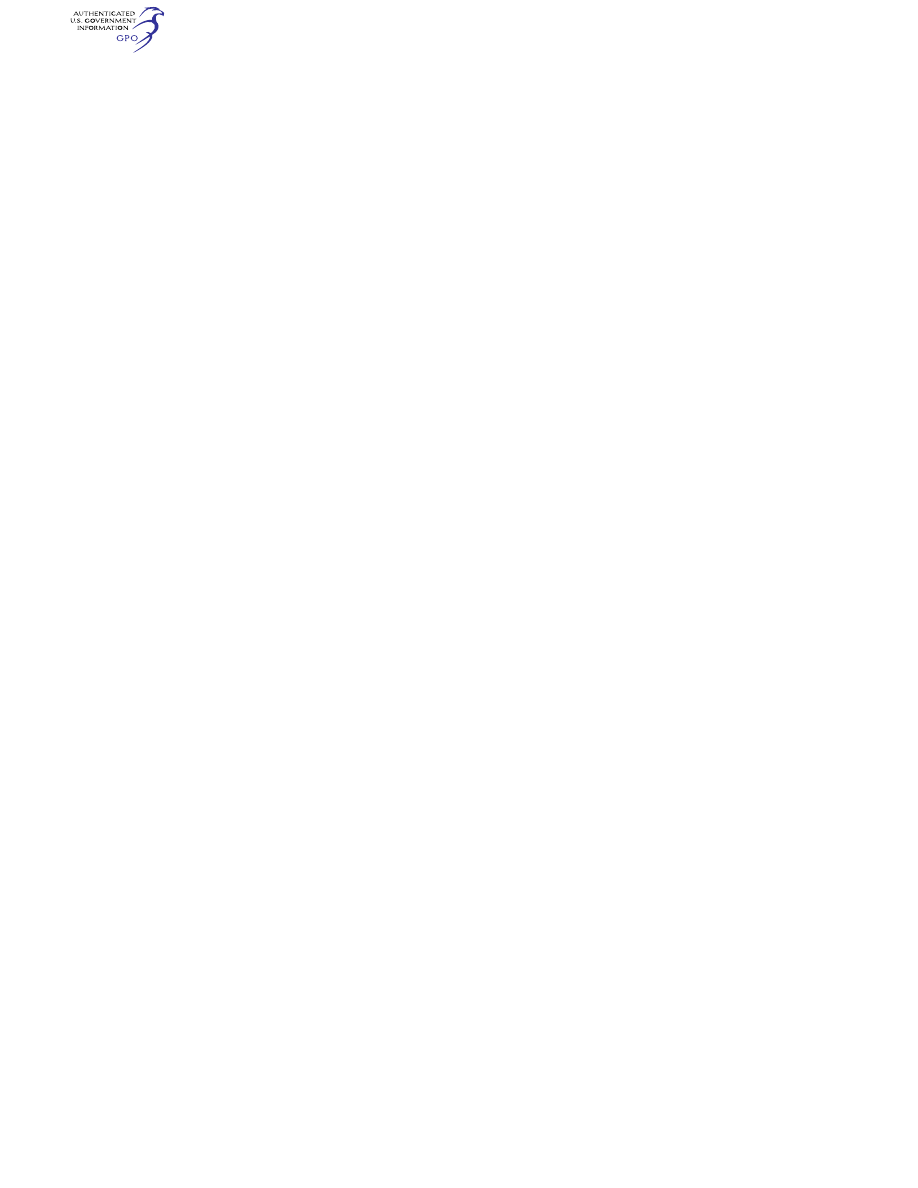
760
14 CFR Ch. I (1–1–24 Edition)
§ 91.709
§ 91.709
Operations to Cuba.
No person may operate a civil air-
craft from the United States to Cuba
unless—
(a) Departure is from an inter-
national airport of entry designated in
§ 6.13 of the Air Commerce Regulations
of the Bureau of Customs (19 CFR 6.13);
and
(b) In the case of departure from any
of the 48 contiguous States or the Dis-
trict of Columbia, the pilot in com-
mand of the aircraft has filed—
(1) A DVFR or IFR flight plan as pre-
scribed in § 99.11 or § 99.13 of this chap-
ter; and
(2) A written statement, within 1
hour before departure, with the Office
of Immigration and Naturalization
Service at the airport of departure,
containing—
(i) All information in the flight plan;
(ii) The name of each occupant of the
aircraft;
(iii) The number of occupants of the
aircraft; and
(iv) A description of the cargo, if any.
This section does not apply to the oper-
ation of aircraft by a scheduled air car-
rier over routes authorized in oper-
ations specifications issued by the Ad-
ministrator.
(Approved by the Office of Management and
Budget under control number 2120–0005)
§ 91.711
Special rules for foreign civil
aircraft.
(a)
General. In addition to the other
applicable regulations of this part,
each person operating a foreign civil
aircraft within the United States shall
comply with this section.
(b)
VFR. No person may conduct VFR
operations which require two-way
radio communications under this part
unless at least one crewmember of that
aircraft is able to conduct two-way
radio communications in the English
language and is on duty during that op-
eration.
(c)
IFR. No person may operate a for-
eign civil aircraft under IFR unless—
(1) That aircraft is equipped with—
(i) Radio equipment allowing two-
way radio communication with ATC
when it is operated in controlled air-
space; and
(ii) Navigation equipment suitable
for the route to be flown.
(2) Each person piloting the air-
craft—
(i) Holds a current United States in-
strument rating or is authorized by his
foreign airman certificate to pilot
under IFR; and
(ii) Is thoroughly familiar with the
United States en route, holding, and
letdown procedures; and
(3) At least one crewmember of that
aircraft is able to conduct two-way ra-
diotelephone communications in the
English language and that crewmember
is on duty while the aircraft is ap-
proaching, operating within, or leaving
the United States.
(d)
Over water. Each person operating
a foreign civil aircraft over water off
the shores of the United States shall
give flight notification or file a flight
plan in accordance with the Supple-
mentary Procedures for the ICAO re-
gion concerned.
(e)
Flight at and above FL 240. If VOR
navigation equipment is required under
paragraph (c)(1)(ii) of this section, no
person may operate a foreign civil air-
craft within the 50 States and the Dis-
trict of Columbia at or above FL 240,
unless the aircraft is equipped with ap-
proved DME or a suitable RNAV sys-
tem. When the DME or RNAV system
required by this paragraph fails at and
above FL 240, the pilot in command of
the aircraft must notify ATC imme-
diately and may then continue oper-
ations at and above FL 240 to the next
airport of intended landing where re-
pairs or replacement of the equipment
can be made. A foreign civil aircraft
may be operated within the 50 States
and the District of Columbia at or
above FL 240 without DME or an RNAV
system when operated for the following
purposes, and ATC is notified before
each takeoff:
(1) Ferry flights to and from a place
in the United States where repairs or
alterations are to be made.
(2) Ferry flights to a new country of
registry.
(3) Flight of a new aircraft of U.S.
manufacture for the purpose of—
(i) Flight testing the aircraft;
(ii) Training foreign flight crews in
the operation of the aircraft; or
VerDate Sep<11>2014
14:00 Mar 14, 2024
Jkt 262047
PO 00000
Frm 00770
Fmt 8010
Sfmt 8010
Q:\14\14V2.TXT
PC31
aworley on LAPBH6H6L3 with DISTILLER

761
Federal Aviation Administration, DOT
§ 91.801
(iii) Ferrying the aircraft for export
delivery outside the United States.
(4) Ferry, demonstration, and test
flight of an aircraft brought to the
United States for the purpose of dem-
onstration or testing the whole or any
part thereof.
[Doc. No. 18834, 54 FR 34320, Aug. 18, 1989, as
amended by Amdt. 91–227, 56 FR 65661, Dec.
17, 1991; Amdt. 91–296, 72 FR 31679, June 7,
2007]
§ 91.713
Operation of civil aircraft of
Cuban registry.
No person may operate a civil air-
craft of Cuban registry except in con-
trolled airspace and in accordance with
air traffic clearance or air traffic con-
trol instructions that may require use
of specific airways or routes and land-
ings at specific airports.
§ 91.715
Special flight authorizations
for foreign civil aircraft.
(a) Foreign civil aircraft may be op-
erated without airworthiness certifi-
cates required under § 91.203 if a special
flight authorization for that operation
is issued under this section. Applica-
tion for a special flight authorization
must be made to the appropriate Flight
Standards Division Manager, or Air-
craft Certification Service Division Di-
rector. However, in the case of an air-
craft to be operated in the U.S. for the
purpose of demonstration at an air-
show, the application may be made to
the appropriate Flight Standards Divi-
sion Manager or Aircraft Certification
Service Division Director responsible
for the airshow location.
(b) The Administrator may issue a
special flight authorization for a for-
eign civil aircraft subject to any condi-
tions and limitations that the Admin-
istrator considers necessary for safe
operation in the U.S. airspace.
(c) No person may operate a foreign
civil aircraft under a special flight au-
thorization unless that operation also
complies with part 375 of the Special
Regulations of the Department of
Transportation (14 CFR part 375).
(Approved by the Office of Management and
Budget under control number 2120–0005)
[Doc. No. 18334, 54 FR 34320, Aug. 18, 1989, as
amended by Amdt. 91–212, 54 FR 39293, Sept.
25, 1989; Docket FAA–2018–0119, Amdt. 91–350,
83 FR 9171, Mar. 5, 2018]
§§ 91.717–91.799
[Reserved]
Subpart I—Operating Noise Limits
S
OURCE
: Docket No. 18334, 54 FR 34321, Aug.
18, 1989, unless otherwise noted.
§ 91.801
Applicability: Relation to part
36.
(a) This subpart prescribes operating
noise limits and related requirements
that apply, as follows, to the operation
of civil aircraft in the United States.
(1) Sections 91.803, 91.805, 91.807,
91.809, and 91.811 apply to civil subsonic
jet (turbojet) airplanes with maximum
weights of more than 75,000 pounds
and—
(i) If U.S. registered, that have stand-
ard airworthiness certificates; or
(ii) If foreign registered, that would
be required by this chapter to have a
U.S. standard airworthiness certificate
in order to conduct the operations in-
tended for the airplane were it reg-
istered in the United States. Those sec-
tions apply to operations to or from
airports in the United States under
this part and parts 121, 125, 129, and 135
of this chapter.
(2) Section 91.813 applies to U.S. oper-
ators of civil subsonic jet (turbojet)
airplanes covered by this subpart. This
section applies to operators operating
to or from airports in the United
States under this part and parts 121,
125, and 135, but not to those operating
under part 129 of this chapter.
(3) Sections 91.803, 91.819, and 91.821
apply to U.S.-registered civil super-
sonic airplanes having standard air-
worthiness certificates and to foreign-
registered civil supersonic airplanes
that, if registered in the United States,
would be required by this chapter to
have U.S. standard airworthiness cer-
tificates in order to conduct the oper-
ations intended for the airplane. Those
sections apply to operations under this
part and under parts 121, 125, 129, and
135 of this chapter.
(b) Unless otherwise specified, as
used in this subpart ‘‘part 36’’ refers to
14 CFR part 36, including the noise lev-
els under appendix C of that part, not-
withstanding the provisions of that
part excepting certain airplanes from
the specified noise requirements. For
purposes of this subpart, the various
VerDate Sep<11>2014
14:00 Mar 14, 2024
Jkt 262047
PO 00000
Frm 00771
Fmt 8010
Sfmt 8010
Q:\14\14V2.TXT
PC31
aworley on LAPBH6H6L3 with DISTILLER

